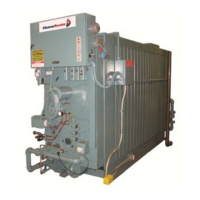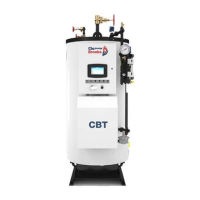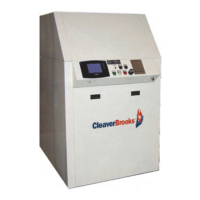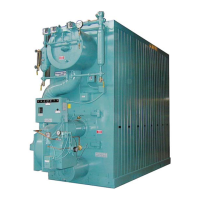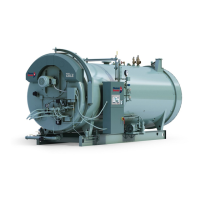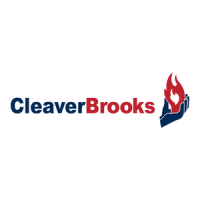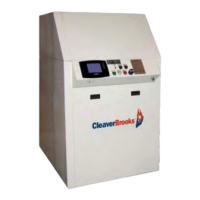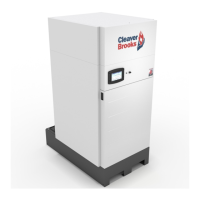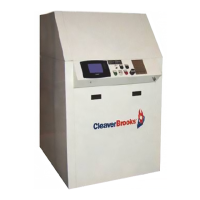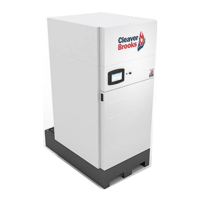750-211 (revised 2009)
Promethean Boilers, Model 4WI Manual
3-7
3.4 — Cleaning
3. Prevent inter crystalline cracking or caustic embrittlement of boiler metal.
4. Prevent carryover and foaming.
Accomplishment of the above objectives generally requires proper feedwater treatment before and after introduc-
tion of the water into the boiler. The selection of pre-treatment processes depends upon the water source, its chem-
ical characteristics, amount of makeup water needed, plant operating practices, etc. Treating methods include
filtering, softening, de-mineralizing, deaerating, and preheating. After-treatment involves chemical treatment of the
boiler water.
Because of the variables involved, no single boiler compound can be considered a “cure-all” nor is it advisable to
experiment with homemade treating methods. Sound recommendations and their employment should be aug-
mented by a periodic analysis of the feedwater, boiler water, and condensate.
The internal or waterside surfaces of the pressure vessel should be inspected with enough frequency to determine
the presence of any contamination, accumulations of foreign matter, or corrosion, and/or pitting. If any of the con-
dition are detected, contact your local Cleaver-Brooks authorized representative for advice on corrective action.
A properly sized water meter should be installed in the raw water make-up line in order to accurately determine the
amount of raw water admitted to the boiler (steam or hot water) and to aid in maintaining proper waterside condi-
tions.
3.4 — Cleaning
3.4.1 — Hot Water and Steam Piping
Steam and water piping systems connected to the boiler may contain oil, grease, or foreign matter. The impurities
must be removed in order to prevent damage to pressure vessel heating surfaces. On a steam system, the conden-
sate should be wasted until tests show the elimination of undesirable impurities. During the period that condensate
is wasted, attention must be given to the treatment of the raw water used as make-up so that an accumulation of
unwanted materials or corrosion does not occur. For more information, contact your local Cleaver- Brooks autho-
rized representative.
On a hot water system, chemical cleaning is generally necessary and the entire system should be drained after treat-
ment. Consult your local Cleaver-Brooks authorized representative for recommendations, cleaning compounds,
and application procedures.
3.4.2 — Pressure Vessel
The waterside of the pressure vessel must be kept clean from grease, sludge, and foreign material. Such deposits, if
present, will shorten the life of the pressure vessel, will interfere with efficient operation and functioning of control
and safety devices, and quite possibly cause unnecessary and expensive rework, repairs, and downtime.
The installation and operating conditions that the boiler will be subjected to should be considered and cleaning of
the waterside of the pressure vessel should be provided during the course of initial start-up.
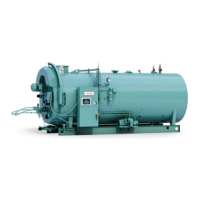
